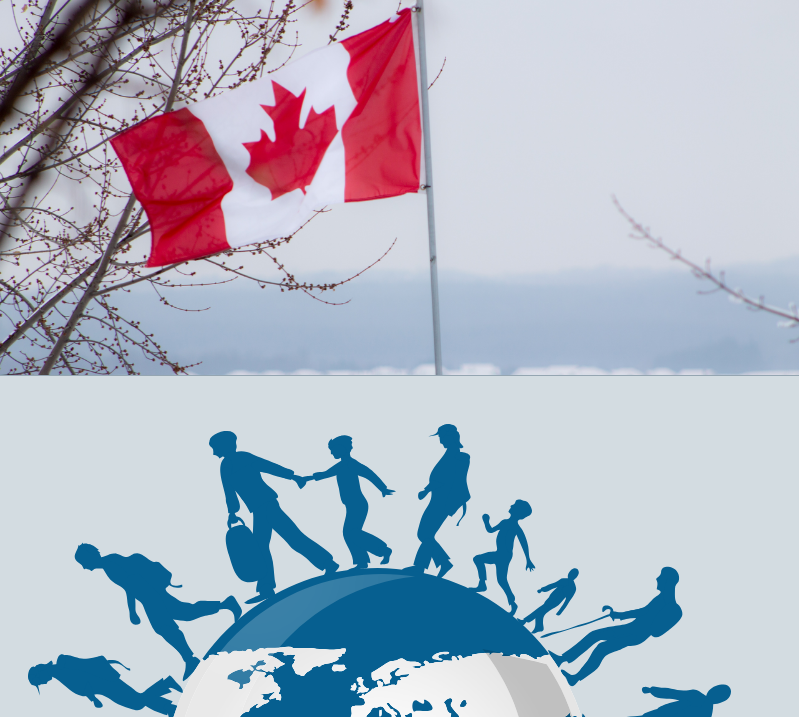Immigration, Refugees & Citizenship Canada (IRCC) invited 3,343 candidates to apply for Canadian permanent residence in Express Entry draw which took place on July 23, 2020. The cut-off CRS score in this draw was 445 targeting only Canadian Experience Class (CEC) candidates. IRCC) has now issued a total of 57,700 Invitations to Apply (ITA’s) in 2020 through the Express Entry system.
Current cut-off CRS score of 445 is a decrease of 14 points from the previous all program draw on July 8, 2020. Yesterday, IRCC issued 557 ITA’s to Express Entry candidates nominated through the Provincial Nominee Program (PNP). The minimum CRS score for these candidates was 687. Provincial Nominee Program (PNP) Candidates receive an additional 600 points in the Comprehensive Ranking System (CRS), which is usually sufficient to trigger an invitation to apply (ITA) at the next round of invitations.
Calculate your CRS score with IRCC’s CRS calculator
Express Entry is the application process for skilled workers in Canada or Overseas who want to settle in Canada permanently. Interested Candidates are required to submit an online application to express their interest by creating Express Entry (EE) profile and, providing information about their skills, work experience, language ability, education and some other details. After submitting the profile, candidates get a score to determine their place in the pool using the point-based system called Comprehensive Ranking System (CRS). The CRS system considers skills, work experience, language ability, education and other factors (e.g. having a sibling in Canada, Canadian education or a valid job offer in Canada, etc.) to award points. Highest ranking candidates from Express Entry pool are regularly invited to apply for Canadian Permanent Residence. Express Entry manages applications for permanent residence under these federal economic immigration programs:
- Federal Skilled Worker Program (FSWP)
- Federal Skilled Trades Program (FSTP)
- Canadian Experience Class (CEC)
- Express Entry streams of the Provincial Nominee Programs
Nearly 110,000 new permanent residents were admitted through Express Entry in year 2019
A total of 109,595 principal applicants and their family members were granted permanent residence through express entry in 2019, compared to 92,229 in 2018. This represents a year over year increase of 19%. The CRS cut off ranged from 438 to 475 in 2019, making an average score of 461. In 2018 the average score was 442. This increase in average CRS cut-off score demonstrates that the express entry pool became more competitive last year. This increase was partially due to a larger pool size, as well as the increased number of candidates selected through a Provincial Nominee Program (PNP). PNP recipients automatically receive an additional 600 CRS points toward their overall score.
How minimum CRS score will fluctuate in next draws?
Despite COVID-19 pandemic, total number of ITA’s issued this year so far exceeds the number of invitations issued at the same time last year. As per Government of Canada’s Immigration Levels Plan for 2020-2022, Canada aims to welcome 341,000 new permanent residents in 2020, 351,000 in 2021, and 361,000 in 2022. Federal Skilled Worker Program candidates represented the largest proportion of all individuals admitted in 2019 with 58,173 admissions, followed by candidates in Canadian Experience Class (30,230) Provincial Nominee Program (20,014) and Federal Skilled Trades (1,178). After coronavirus travel restrictions, IRCC began to hold PNP and CEC specific draws. First all-program Express Entry draw took place on July 15, 2020 since the start of the coronavirus pandemic.
We had speculated that IRCC will hold program specific draws in consecutive draws and this is evident from today’s draw when only CEC candidates has been invited. There are several factors and reasons (e.g. unemployment rate, travel restrictions, closure of visa processing offices etc.) why government is preferring CEC and PNP candidates during this pandemic. Unemployment rate in Canada is historically high, and it will be challenging for a new immigrant to find a job in today’s job market, and get settled in new country. Government’s may prefer to restrict influx of new permanent residents coming outside from country. However, to meet the immigration target for this year, the Government will prefer to invite candidates who are already in Canada.
IRCC may continue to invite only CEC candidates in consecutive draws. This may be good for several candidates in Canada having low CRS scores. Candidates qualified under CEC & having low scores still have an opportunity to get an ITA in coming months.
Contact us for consultation, assessment or assistance!







